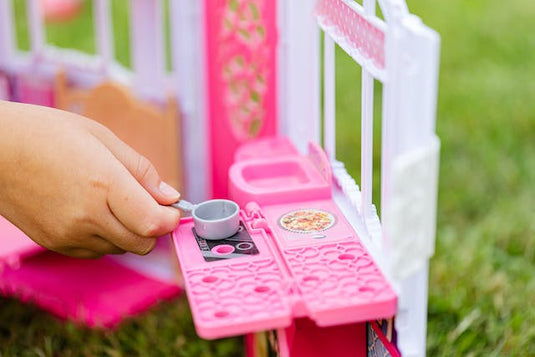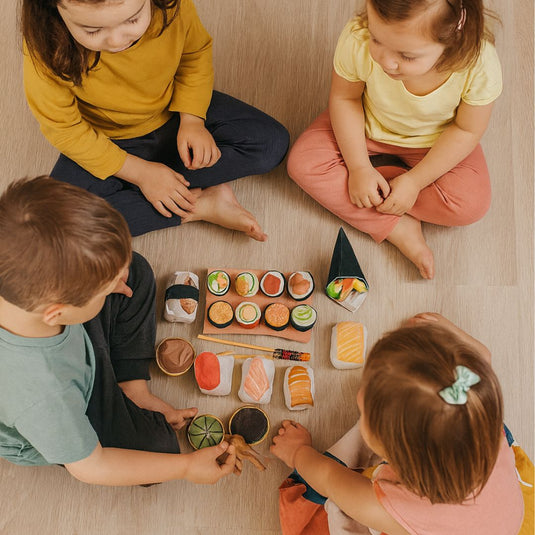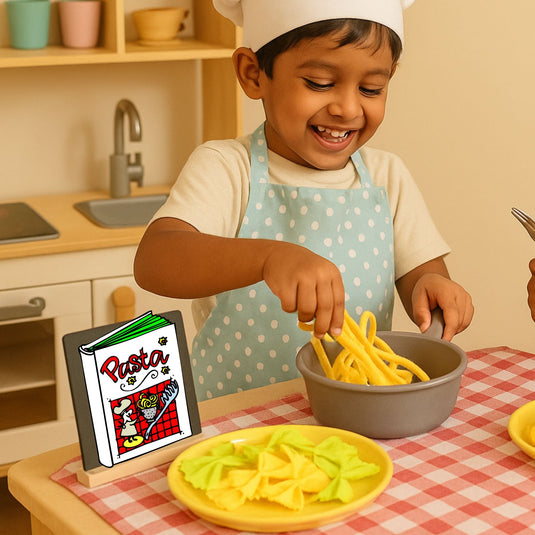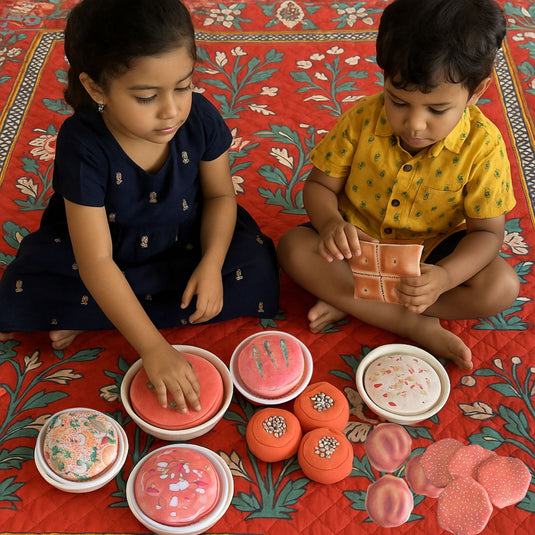Play kitchen food is a fantastic tool for enhancing imaginative play in children. Here are several ways it contributes to the development of creativity and imagination:
1. **Role-Playing Scenarios:**
- Children can use play kitchen food to imitate real-life scenarios, such as cooking meals, hosting a dinner party, or running a restaurant. This role-playing encourages creativity as they come up with different roles and scenarios for their play.
2. **Storytelling and Narratives:**
- Play kitchen food allows children to create imaginative stories and narratives. They can assign personalities to different food items, turning them into characters with unique backgrounds and adventures.
3. **Culinary Exploration:**
- Kids can experiment with various food combinations, inventing new recipes and exploring the concept of taste and texture. This fosters a sense of curiosity and creativity as they invent their own culinary world.
4. **Social Interaction and Communication:**
- Playing with play kitchen food often involves interaction with peers, siblings, or even imaginary friends. This promotes social skills, cooperation, and the sharing of ideas, fostering a collaborative and imaginative play environment.
5. **Cognitive Development:**
- Sorting, categorizing, and organizing play food items can enhance cognitive skills. Children can use their imagination to create systems for arranging the food, whether it's by color, size, or food group.
6. **Problem-Solving Skills:**
- Imaginative play with play kitchen food often involves overcoming challenges. Children may encounter situations like not having enough ingredients or dealing with a pretend cooking mishap, encouraging them to think creatively and find solutions.
7. **Cultural Exploration:**
- Play kitchen food offers an opportunity to explore different cuisines and cultures. Children can pretend to cook dishes from around the world, introducing them to diverse food traditions and encouraging an appreciation for global cultures.
8. **Fine Motor Skills Development:**
- Handling small play food items, utensils, and pots promotes the development of fine motor skills. Cutting, stirring, and arranging food can enhance hand-eye coordination and dexterity.
9. **Expressing Emotions:**
- Children often express their emotions through imaginative play. They may use play kitchen food to act out feelings or situations, providing a safe space to explore and understand various emotions.
10. **Creativity in Design:**
- Kids can get creative with designing their own play food items. They might craft unique shapes or create imaginative foods that don't exist in reality, fostering out-of-the-box thinking and inventive ideas.
Incorporating play kitchen food into imaginative play not only stimulates creativity but also helps children develop various skills essential for their overall growth. It encourages them to think, explore, and express themselves in a playful and enjoyable manner.
How Play Kitchen Food Enhances Imaginative Play




